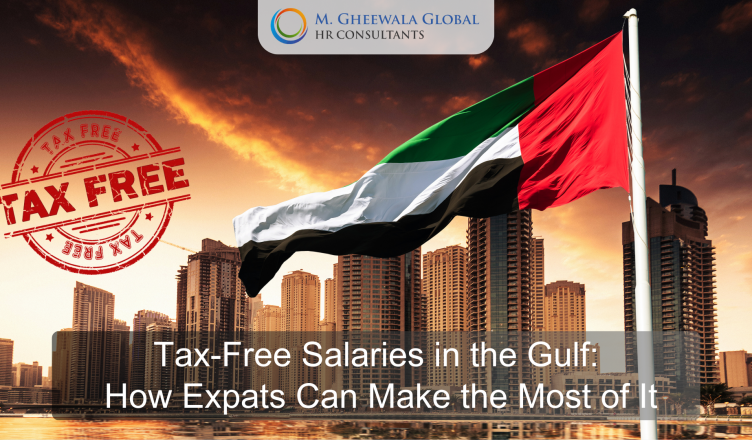The Gulf region, comprising countries such as the United Arab Emirates (UAE), Saudi Arabia, Qatar, Kuwait, Bahrain, and Oman, has long been a magnet for expats seeking lucrative career opportunities and a high standard of living. One of the most significant advantages of working in the Gulf is the tax-free salary, which can greatly boost an expat’s take-home pay. In this blog, we’ll explore the concept of tax-free salaries in the Gulf, how expats can make the most of it, and provide practical tips on managing finances in a tax-free environment.
Understanding Tax-Free Salaries in the Gulf
In most Gulf countries, employees are not required to pay income tax on their salaries. This means that the salary you receive is yours to keep, without any deductions for taxes. However, it’s essential to note that some countries in the region may have other forms of taxation, such as value-added tax (VAT) or municipal taxes.
Benefits of Tax-Free Salaries for Expats
Tax-free salaries offer numerous benefits for expats, including:
1. Increased take-home pay: Without income tax deductions, expats can enjoy a higher take-home pay, which can be used to cover living expenses, save, or invest.
2. Improved standard of living: Tax-free salaries can provide expats with a higher standard of living, enabling them to enjoy luxuries and comforts that might be unaffordable in their home country.
3. Savings and investment opportunities: With more disposable income, expats can save and invest for the future, whether it’s for retirement, a down payment on a house, or other long-term goals.
Managing Finances in a Tax-Free Environment
While tax-free salaries can be a significant advantage, it’s crucial to manage your finances effectively to make the most of this benefit. Here are some practical tips:
1. Create a budget: Track your income and expenses to understand where your money is going. Make a budget that accounts for your living expenses, savings, and investments.
2. Save and invest: Take advantage of the higher take-home pay to save and invest for the future. Consider consulting a financial advisor to create a personalized investment plan.
3. Avoid overspending: While it’s tempting to splurge on luxuries, avoid overspending and prioritise saving and investing for long-term goals.
4. Understand local taxes and fees: While income tax may not be applicable, there may be other taxes and fees, such as VAT or municipal taxes, that you need to account for.
Tax Implications for Expats in the Gulf
While tax-free salaries are a significant advantage, expats should be aware of the tax implications in their home country. Some countries may tax their citizens on their worldwide income, regardless of where it’s earned. It’s essential to consult a tax professional to understand your tax obligations and ensure compliance.
Practical Tips for Expats in the Gulf
Here are some practical tips for expats in the Gulf to make the most of their tax-free salary:
1. Research local costs: Understand the cost of living in your host country and plan your expenses accordingly.
2. Take advantage of local benefits: Many Gulf countries offer benefits such as free housing, transportation, or education allowances. Take advantage of these benefits to reduce your expenses.
3. Save for emergencies: Create an emergency fund to cover unexpected expenses, such as medical bills or repatriation costs.
4. Plan for the future: Use your tax-free salary to save and invest for long-term goals, such as retirement or a down payment on a house.
Tax-free salaries in the Gulf offer a significant advantage for expats, providing a higher take-home pay and improved standard of living. However, it’s essential to manage your finances effectively, create a budget, save and invest for the future, and understand local taxes and fees. By following these practical tips, expats in the Gulf can make the most of their tax-free salary and achieve their long-term financial goals.

